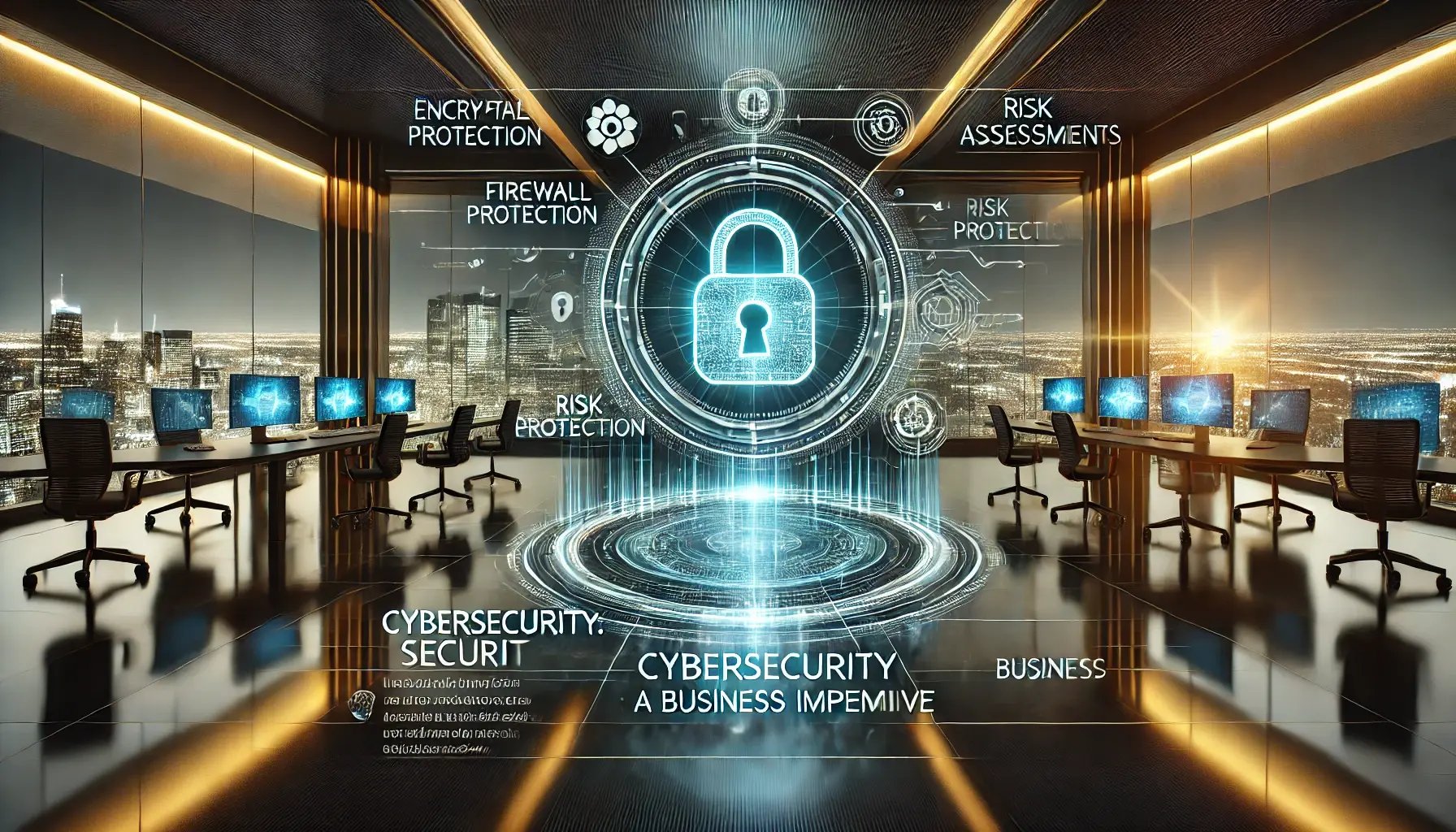In a rapidly evolving world, where technological advancements are reshaping industries across the...
The Essential Role of Cybersecurity in Modern Business Operations
 In today’s hyper-connected world, cybersecurity is no longer just a technical concern—it is a business imperative. With cyber threats evolving at an unprecedented pace, organizations of all sizes must prioritize cybersecurity to safeguard their assets, protect sensitive data, and maintain the trust of their customers and stakeholders. Companies that fail to address cybersecurity risks expose themselves to potential financial losses, reputational damage, and regulatory consequences.
In today’s hyper-connected world, cybersecurity is no longer just a technical concern—it is a business imperative. With cyber threats evolving at an unprecedented pace, organizations of all sizes must prioritize cybersecurity to safeguard their assets, protect sensitive data, and maintain the trust of their customers and stakeholders. Companies that fail to address cybersecurity risks expose themselves to potential financial losses, reputational damage, and regulatory consequences.
The Rising Threat Landscape
Cyber threats have become more sophisticated, frequent, and costly. According to recent reports, cybercrime is projected to cost businesses trillions of dollars annually in the coming years. Ransomware attacks, phishing schemes, insider threats, and data breaches are among the most significant risks organizations face today. As businesses increase their reliance on digital infrastructure, cloud computing, and remote workforces, their vulnerability to cyber threats also grows.
Why Cybersecurity Should Be a Top Priority for Businesses
-
Protecting Sensitive Data
Businesses handle vast amounts of confidential information, including customer data, financial records, and proprietary intellectual property. A single data breach can compromise this information, leading to legal penalties, financial losses, and a loss of consumer trust. -
Regulatory Compliance and Legal Obligations
Organizations must comply with stringent cybersecurity regulations, such as GDPR, ISO 27001, and industry-specific standards. Non-compliance can result in heavy fines and legal repercussions, making cybersecurity a necessary investment. -
Safeguarding Brand Reputation
A cyber attack can severely damage an organization's reputation. Customers and partners expect businesses to protect their data, and failure to do so can lead to lost trust and a decline in market share. In contrast, strong cybersecurity measures can serve as a competitive advantage, demonstrating a company’s commitment to security and reliability. -
Ensuring Business Continuity
Cyber attacks can disrupt operations, causing downtime, financial losses, and a decline in productivity. A robust cybersecurity strategy includes incident response plans and disaster recovery protocols, ensuring that businesses can quickly recover from cyber incidents and continue operating with minimal disruption. -
Addressing the Risks of Remote Work
The rise of remote work has introduced new security challenges, including unsecured home networks and increased phishing attacks. Organizations must implement secure access controls, employee training, and endpoint protection to mitigate these risks.
Key Strategies for Strengthening Cybersecurity
-
Risk Assessments & Continuous Monitoring
Conducting regular cybersecurity risk assessments helps identify vulnerabilities and address them proactively. Implementing continuous monitoring ensures real-time threat detection and response. -
Employee Training & Awareness
Human error remains one of the leading causes of cyber incidents. Providing cybersecurity training for employees helps them recognize threats such as phishing scams and social engineering attacks. -
Implementing Multi-Layered Security Measures
Businesses should adopt a multi-layered security approach, including firewalls, encryption, multi-factor authentication, and endpoint protection solutions. -
Incident Response & Crisis Management
Having a well-defined incident response plan in place enables organizations to act swiftly in the event of a cyber attack, minimizing damage and restoring operations efficiently. -
Outsourcing to Cybersecurity Experts
Many organizations lack the in-house expertise to manage cybersecurity effectively. Partnering with experienced cybersecurity professionals, such as Grant & Graham, ensures that businesses have access to specialized knowledge and cutting-edge security solutions.
The Cost of Inaction
Ignoring cybersecurity is a gamble that no business can afford to take. The financial and reputational repercussions of a cyber attack can be devastating, often leading to long-term consequences that go beyond monetary losses. In an era where cyber threats are inevitable, companies that take proactive security measures will be better positioned to protect their data, operations, and future growth.
Conclusion: A Call to Action
Cybersecurity is no longer an option—it is a necessity. Businesses must adopt a proactive approach, continuously evolve their security strategies, and work with industry experts to stay ahead of cyber threats. Investing in cybersecurity today is an investment in the longevity, stability, and success of your organization.
If your company needs expert guidance on strengthening its cybersecurity posture, Grant & Graham is here to help. Contact us today to learn how we can protect your business from cyber threats and ensure a secure digital future.



